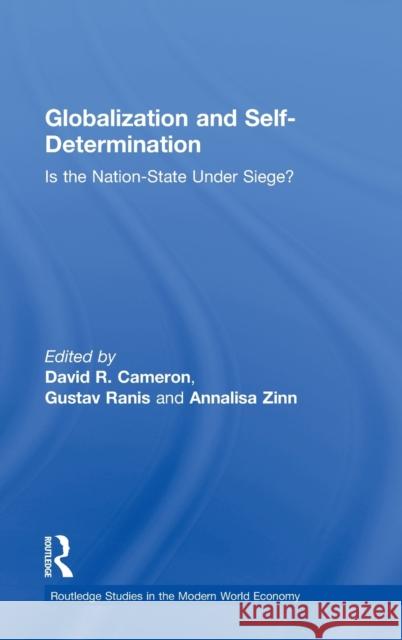Globalization and Self-Determination: Is the Nation-State Under Siege? » książka
Globalization and Self-Determination: Is the Nation-State Under Siege?
ISBN-13: 9780415770224 / Angielski / Twarda / 2006 / 384 str.
Globalization and Self-Determination: Is the Nation-State Under Siege?
ISBN-13: 9780415770224 / Angielski / Twarda / 2006 / 384 str.
(netto: 605,15 VAT: 5%)
Najniższa cena z 30 dni: 580,55
ok. 16-18 dni roboczych.
Darmowa dostawa!
Is the nation state under siege? A common answer is that globalization poses two fundamental threats to state sovereignty. The first threat concerns the unleashing of centrifugal and centripetal forces such as increasing market integration and the activities of institutions like the IMF, World Bank, and WTO- that imperil state sovereignty from "outside" the nation state. The second threat emanates from self-determination movements that jeopardize state sovereignty from "inside" the nation state.
This book rigorously analyzes popular hypotheses regarding globalization's effect on state sovereignty from a broad social sciences perspective. Using empirical evidence the authors suggest that globalization's multilevel threats to state sovereignty have been overestimated. In most instances globalization is likely to generate pressure for increased government spending while only one form of market integration - foreign direct investment by multinational enterprises - appears to increase any feeling of economic insecurity.
Also contrary to popular perception, the net effect of IMF conditionality may be positive, limits on state sovereignty by multilateral development banks are not inevitable, and the WTO is not necessarily a threat to state sovereignty. Furthermore, globalization is likely to increase the risk of secessionism only in very specific conditions and while some self-determination movements may find globalization useful, on the whole countries with more open economies appear less likely to house self determination movements and are more likely to implement policies of fiscal centralization.











